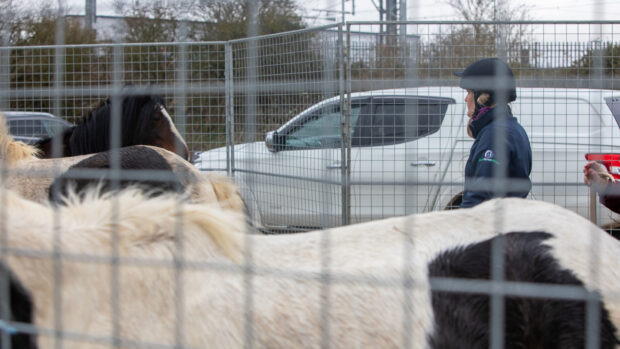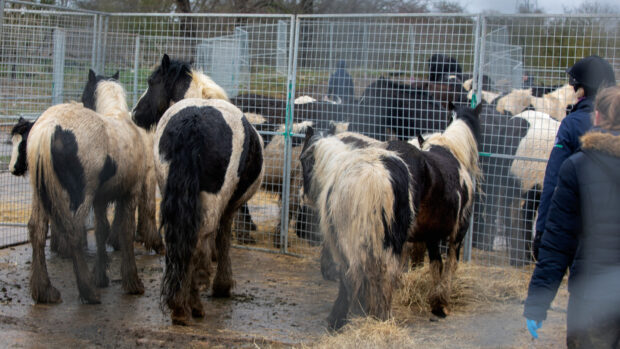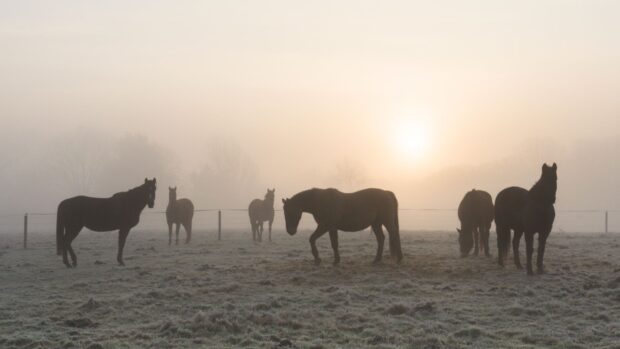Charity rehoming figures have dropped in 2023, as owners continue to feel the effects of the cost-of-living crisis.
Although inflation has eased compared to last year, families continue to face high food, fuel and energy bills. A survey run by the National Equine Welfare Council (NEWC) last winter showed that one in five of more than 8,000 owners surveyed said they were having to consider difficult decisions, such as sale, sharing or euthanasia of their horses, owing to rising costs (news, 13 July).
Redwings chief executive Lynn Cuttress told H&H with the increased cost of living the charity “anticipated an increased number of calls for help”.
“However we haven’t seen the influx of welfare cases we were expecting since then and that seems to be the consensus across the sector – it’s a waiting game and the NEWC survey will be rerun this winter to keep an eye on the state of play as the winter progresses.”
By December Redwings had taken in 104 equines this year, and rehomed 101.
“While this was less than our record 147 homes found in 2022, this is still a vital way that Redwings can continue to manage our capacity, so we are able to continue our life-saving front-line welfare work,” said Ms Cutress.
The RSPCA took in 444 equines in 2023, up 15% on 2022.
“This year we rehomed 82 horses, which is a drop of more than 50% on last year, which is a trend across the rehoming sector as the cost of living takes its toll,” RSPCA equine specialist Mark Kennedy told H&H.
World Horse Welfare had 301 admissions across its four centres, including foals born at the charity from pregnant mares taken in.
“This is around 50 horses higher than [each of] the last two years, but is a return to pre-Covid levels; we took in 369 in 2019. Our rehoming levels have dropped from the record 300 rehomed a year during the pandemic, with 279 rehomed this year, back to more normal levels,” said a World Horse Welfare spokesman.
“Sadly, we continue to see a number of welfare intakes involving large numbers of horses with multi-agency cooperation. All rehomed horses remain in our ownership for life, and we always take them back if circumstances for the rehomers change. Although the number of rehomed horses returned is slightly higher this year, when we look at the proportion of all horses currently out, the return rate has remained stable.”
Bransby Horses took in 119 equines, compared to 150 last year. The charity rehomed 83 in 2023 and 109 in 2022.
“Throughout the year we have responded to abandoned horses that have not been microchipped, this makes it very difficult for us or the authorities to trace and owner. Twenty-two equines have been signed over to the charity under the Control of Horses Act to date this year,” a Bransby spokesman told H&H.
“This winter has hit the equine community hard, so we are expecting an increase in calls for support and welfare concerns as we head into 2024.”
You might also be interested in:

Owners go without heating and hot water to afford their horses

Subscribe to Horse & Hound magazine today – and enjoy unlimited website access all year round
Horse & Hound magazine, out every Thursday, is packed with all the latest news and reports, as well as interviews, specials, nostalgia, vet and training advice. Find how you can enjoy the magazine delivered to your door every week, plus options to upgrade your subscription to access our online service that brings you breaking news and reports as well as other benefits.




